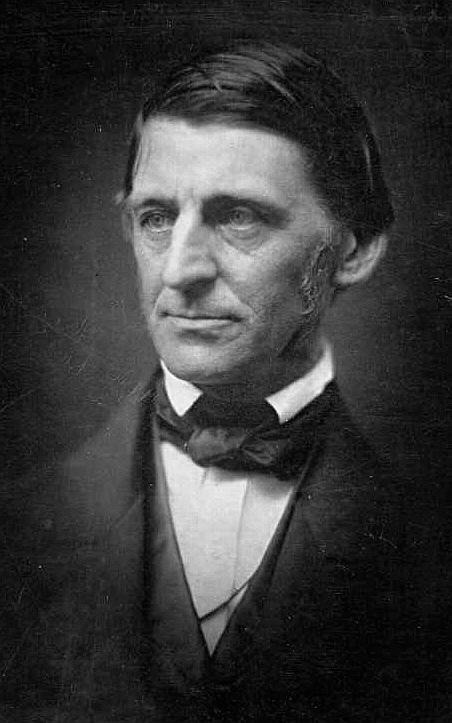"Facing the future" is a book authored by
Manly P. Hall, most known as a writer on various esoteric subjects. In this
text, published in 1934, Hall ventures into politics. His ideas turn out to be
elitist, anti-democratic and "socialist". Hall's sources of
inspiration are unclear, but he quotes Plato and claims that the pyramidal
structure of government he wants implemented is symbolized by the Egyptian
pyramid found on the Great Seal of the United States (the pyramid is also a
Masonic symbol).
Hall explicitly calls for a planned economy. The government should own and
control public utilities, communications and banks. It should balance
production and consumption through a plan, and abolish unemployment through a
program of public works. The government should also decide what crops the
farmers should grow on their land. Capitalism is tearing the nation apart
through competition and unemployment, while turning those still employed into
obsessive consumers. It must therefore be abolished. For some reason, Hall
never actually uses the term "capitalism", preferring instead to speak
about "competition" or "individualism". Nor does he ever
use the term "socialism" for his own preferred system. Yet, I think
it's obvious that the main thrust of his little book is anti-capitalist and
socialist (or perhaps pseudo-socialist, depending on how you define
"socialism").
Hall's ideal system turns out to be non-democratic. Only people educated in
statecraft and administration should be eligible to become politicians. They
should be appointed rather than elected. No more incompetent, corrupt politicians!
Local and state governments should be abolished, with all power being in the
hands of the federal government. Congress should be abolished in favour of an
assembly of 48 state governors, one of whom should be appointed president.
Under him, the president will have a huge federal administration. No political
parties or lobby groups will be allowed. Like many isolated elite reformers,
Hall fulminates against pretty much everyone: bankers, industrialists,
politicians and the common man. Nobody can be trusted, least of all the people,
who are easy prey for corrupted demagogues and simply don't know their own
good. Rationality and common sense is represented by the disinterested
administrators, who have the good of society as their only ideal. Hall even
proposes the establishment of an international federation or world government.
It's not clear how this far-reaching program should be implemented. Hall liked
Roosevelt, so perhaps he hoped that FDR would go much further than the New
Deal?
While Hall doesn't sound explicitly "Green", there is nevertheless an
anti-technological streak in his book. He wants to tax corporations that use
labour-saving machinery (see further below), and attacks the commercialization
and vulgarization of American culture. While attacking capitalism for making
people unemployed, he also dislikes the consumerist dreams (or habits) of the
common man. Instead, Hall wants a society where people live frugally, at a
lower standard of living than modern industrial society. Somehow, he manages to
square this with a call for a national pension plan and substantial
remuneration for inventors, scientists, etc. I wonder what they are supposed to
be inventing?
"Facing the future" also contain a number of other contradictions.
The author calls for local community control of the economy, which doesn't
square with the centralist vision in other parts of the book. At one point, he
proposes that the local communities buy out the private business owners. Where
should the community find the necessary money? And why should the private
entrepreneurs even want to sell? Hall makes a strange distinction between
useful machinery (such as the radio) and useless machinery (labour-saving
devices). The latter should be heavily taxed, since it creates unemployment by
making workers redundant. But what if the only way to efficiently build useful
machinery is by using labour-saving devices? What if useful machinery creates
unemployment? Surely, the telegraph (or computers, or e-mail) could make many
people redundant.
Strangely, Hall is very individualist when discussing housing, calling for
every family to own their own house. He therefore wants to abolish property
taxes, and even bemoans the fact that people who don't own property have a say
in deciding about such taxes (such as people living in rented flats). This, of
course, is an anti-socialist argument, yet Hall somehow wants to square it with
his socialist vision. He promises a society without any taxes at all,
presumably because the government will get all its revenue from taxing private
businesses. Or nationalizing them?
Despite this muddle, the main thrust of "Facing the future" is the
centralist one. To sum up its argument: Hall wants a society rationally
controlled by a hierarchic administrative apparatus, which does away with all
special interest groups and promotes national unity, peace and (perhaps)
prosperity. The government apparatus isn't an entirely closed caste, since
everyone can enter the proper educational facilities for future politicians and
administrators. But there is no democracy, not even on paper.
Of course, it's easy to mock a proposal like this. Even Hall should have known
better, writing in 1934, during the heyday of Joseph Stalin (or Hitler and
Mussolini). The disinterested, rational administrators in the Soviet Union
became an oligarchic ruling class, just as corrupt as Tammany Hall. Today, it's
obvious that the West European combination of democracy and a "welfare
state" was more civilized than Hall's pyramidal vision. Yet, one cannot
entirely dismiss Manly P. Hall either. The democratic welfare states were built
on the promise of sustained economic growth and permanent progress for both the
working class and the middle classes. Today, these propositions look very
problematic - yet, both the people and the establishment want to continue as
before. Unless "we the people" manage to revamp our democracy
somehow, Hall's authoritarian promised land might become the only option
left...






_-_Foto_G._Dall'Orto.jpg)


_002.jpg)